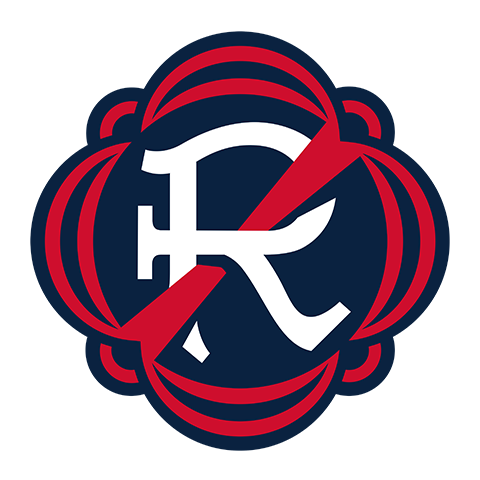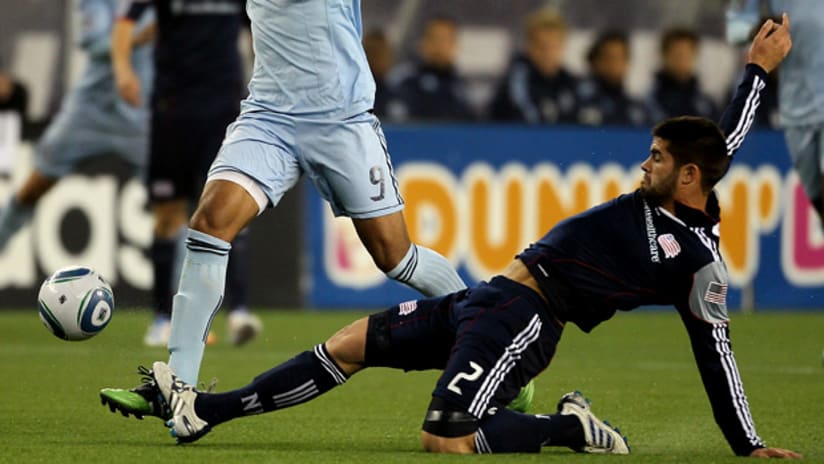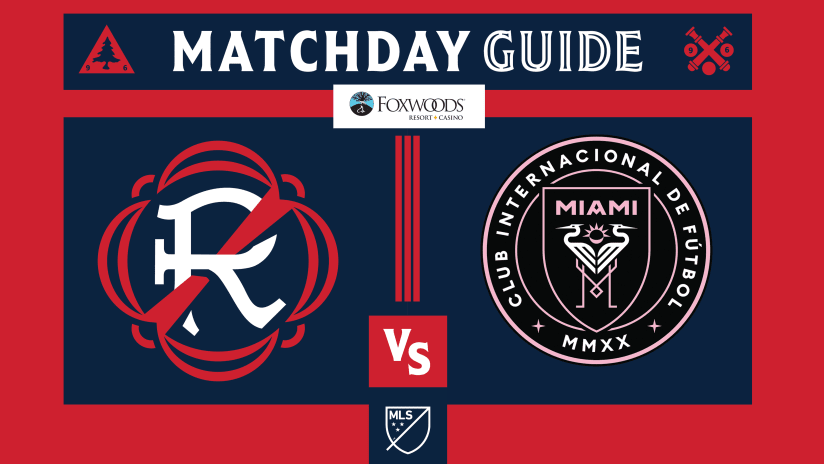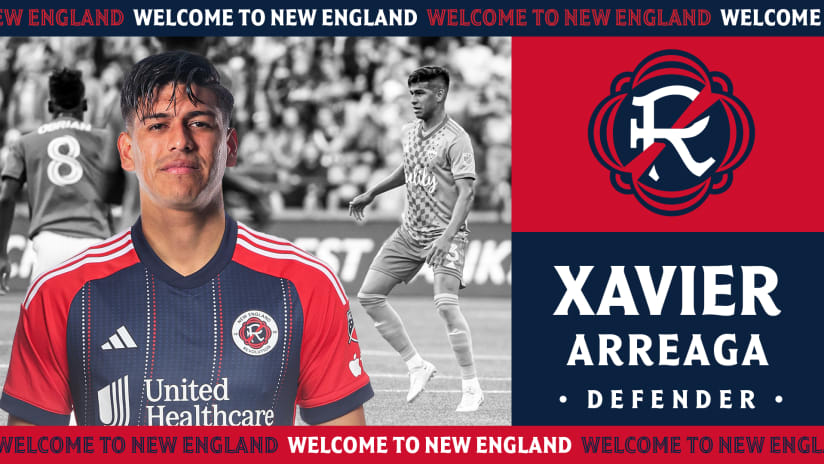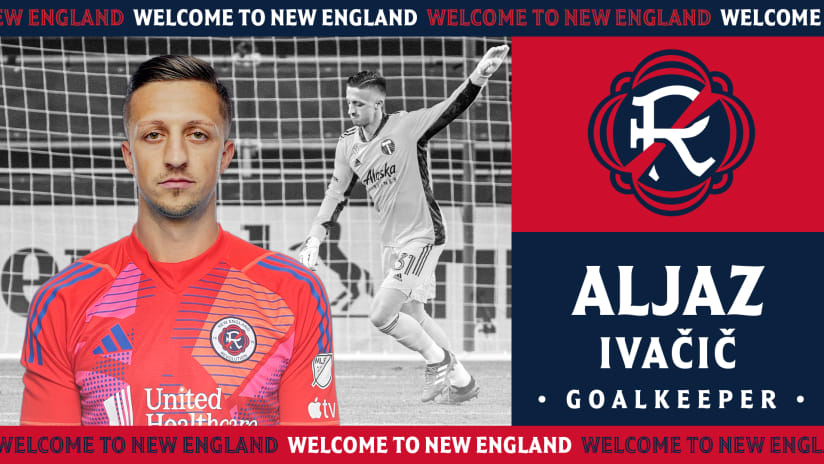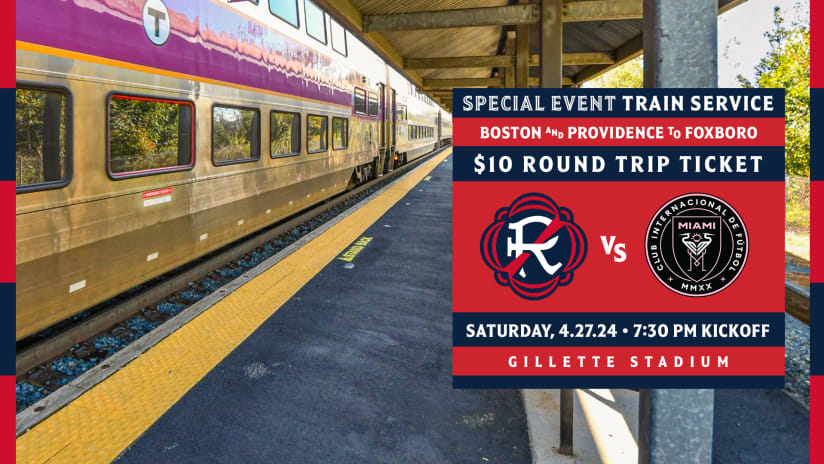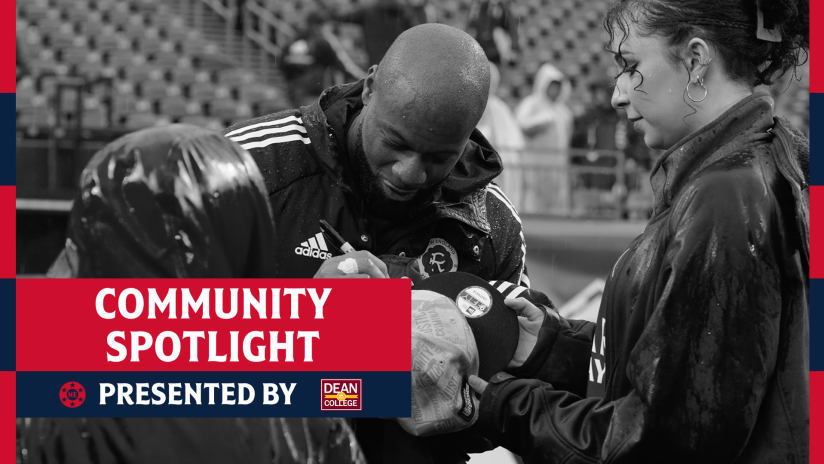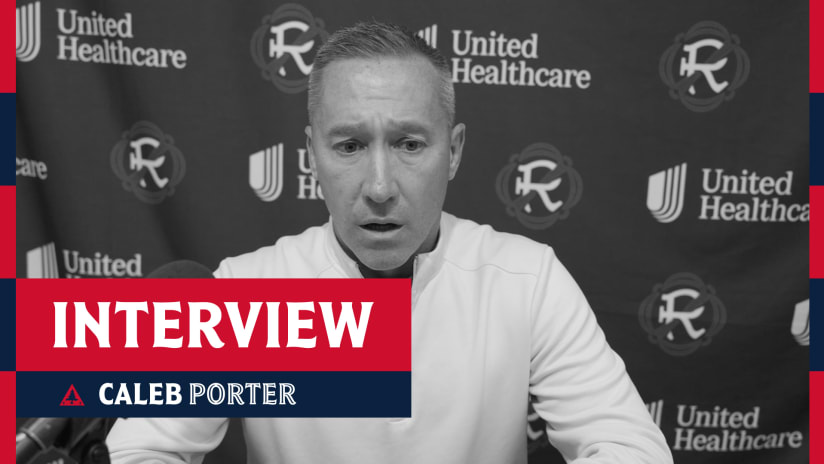FOXBOROUGH, Mass. – In the past year, Major League Soccer has experienced an influx of foreign talent. At the start of the 2011 season, roughly 38 percent of all players on MLS rosters were from outside of the United States and Canada, surpassing the figures of all other major American professional leagues.
Among the recent arrivals from abroad is New England’s South American acquisition, Franco Coria.
Coria finds himself more than 3,000 miles from his hometown of Los Toldos, Argentina, located outside of capital city Buenos Aires. He was exposed to soccer at an early age and started playing when he was six years old. His father, Omar, played for Club Ferro Carril Oeste, which at the time was in Argentina’s top league, the Primera División. Growing up in a rich soccer culture, Coria regularly attended matches; however, it took some time to find his own niche within the sport.
“At the beginning, I didn’t like (soccer),” Coria said. “I didn’t like any sport in particular. I liked all sports in general, but there wasn’t one I was passionate about.”
That outlook changed when Coria was 10 years old. It was then that he discovered a love for soccer that would drive him to pursue a professional career.
“I think someone who plays soccer and enjoys it wants to someday turn pro,” he said. “During my youth, I worked hard, and at 18, I was able to make it a reality.”
The Argentine defender was signed by the Revolution on February 17, 2011, and after undergoing the process to obtain a U.S. Visa, arrived in Foxborough, where he began training with the team, on February 28.
Upon joining the Revs, Coria already had a few years of professional experience with Club Atlético Chacarita Juniors in Argentina. In 2007 he joined the first team, which played in the Primera Nacional B, after coming up through the ranks of Chacarita’s youth program. The club was later promoted to Argentina’s Primera División for the 2009-10 season, during which he made eight appearances – five as a starter and three as a substitute.
Looking to restructure their defense around new talent, the Revs brought Coria on board halfway through preseason after an off-season scouting trip to Argentina. Revolution assistant coach Stephen Myles made the trip to South America to observe the young defender in person. Coria impressed Myles, and after a few conversations with the player and his representative, the three came to an agreement.
Although only 22, Coria approaches the game with a veteran’s mentality, and his new Revolution teammates have taken notice of this early in the season.
“He’s very professional, he trains hard every day,” rookie defender A.J. Soares said. “He always brings a really high quality and plays the game right. He passes the ball out of the back and he’s tough. He’s a really good player. I learn a lot from him.”
Despite only taking part in five training sessions with the Revs, Coria was immediately tested during the Revs’ second preseason trip to Kennesaw, Ga. He earned a starting spot in his first two games, a 2-1 win and 3-1 loss, both against the Columbus Crew. Coria’s shortened preseason provided him only a glimpse of the quality of MLS opponents, with which he had previously been unfamiliar.
“The truth is that when I arrived here, I had no idea what it was going to be like,” Coria said. “In Argentina, you can only see European and South American leagues. We’ve found out about (MLS) because there were Argentine players over here like Guillermo Barros Schelotto. When I found out about the possibility of coming here, I started to study a little more. Finally when I arrived here, it was fantastic.”
Since the first whistle of the Revs’ 2011 season opener against the LA Galaxy on March 20, Coria has displayed the ability to thrive in this league. His composure on the ball, innate ability to mark strikers in the box and strength to win most aerial duels, all point to future success for the Revolution. Coria may not be the most vocal player on the field, but his presence is known by opponents and fans alike.
“I’m a humble leader,” he admitted. “The only thing I try to do is help the team the best way I can.”
Coria is undoubtedly a “lead-by-example” type of player. His actions on the pitch are what define him.
“You can always count on him winning the ball; he’s a really strong guy,” Soares said about his defensive partner. “Also, when we have the ball, he keeps it. He never panics on it and that’s really important as a backline player. When the ball’s around him, you can trust that it’s in a good place.”
When asked to compare his time with an Argentine club versus his experience thus far with an MLS team, Coria admitted to being surprised by how “fast and technical” his Revolution teammates are. He asserted, “this is very important now.”
He has also witnessed a devoted fan base reminiscent of what he saw in Argentina. He believes that passion for soccer is felt strongly in the U.S.
“The players are passionate in both places,” Coria said. “The fans here are great - they always try to encourage the team.”
Argentina has a vivid soccer tradition and vibrant fan culture. In Coria’s homeland, players such as Daniel Passarela, Diego Maradona, Gabriel Batistuta and Lionel Messi have achieved an elevated status in society because of their footballing abilities.
Although the atmosphere around the game may be culturally distinct between the two countries, Coria’s transition from Argentina’s Primera División to MLS has proven to be relatively smooth.
It is not an easy task for an athlete to pack up and move to a foreign country by himself; however, having lived here for a short amount of time, Coria only has good things to say about the area.
“Life in New England is very calm and safe,” he said. “The people are friendly and the city is very clean. I like it a lot.”
So what has been Coria’s biggest challenge? “The language.”
“I need to learn (English), which I am more or less doing,” he said. “Every day I try to say something, and my teammates correct me over and over again.”
Luckily, with the abundance of multi-lingual players on the current Revolution squad, Coria has several teammates who can communicate with him in his native Spanish. He cited Didier Domi and fellow center back Soares among his teammates who serve as translators when needed and who can hold their own in conversations in Spanish.
“We clicked really quickly,” Soares said. “I think because I was one of the few guys he could communicate with in the beginning. We also play the same position – that was a big help. I have some friends from Argentina so we kind of have a lot to talk about.
“We’re both new to the area,” he continued. “I’m coming from the West Coast, he’s coming from South America, so we both made a big move up here. His (was) bigger than mine, obviously, but we’re in somewhat of a similar situation. We’re figuring it out together, which is nice.”
On the field, Coria says the language barrier only poses a minor issue.
“A.J. Soares and (Matt) Reis speak enough Spanish, and I know some words in English, so more or less the defense communicates well,” he said.
When asked what English words he hears frequently in games, Coria answered, “Up, up, up, up,” with the same sense of urgency in his voice his defensive counterparts have in the game.
Head coach Steve Nicol also believes any communication issue on the pitch can be easily alleviated.
“There’s a small language barrier with his Spanish and my Scottish,” Nicol admitted. “But when you play soccer, it doesn’t matter what language you speak. There are certain things that you do or don’t do. It’s easy enough to correct on the field.”
It’s easy to see why soccer has been crowned “The World’s Game.” Because of its accessibility and popularity, all players are able to learn a universal language through the sport that transcends all national borders. Coria may not be fluent in English yet, but he does share a common language with his teammates.
In his first year with the Revolution, the young Argentine has already made a significant impact on the team’s defense, which conceded a league-high 50 goals in 2010. He is determined to continue progressing as a player and help his new team return to the MLS Cup.
When asked about his goals for the 2011 season, Coria only had this to say: “Salir campeones.” To be the champions.
